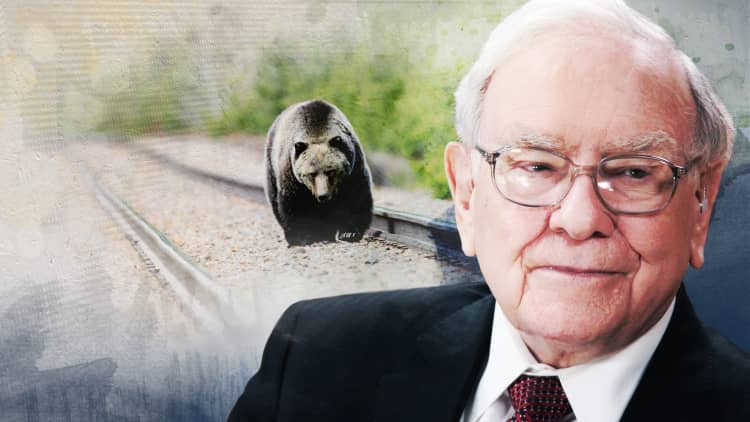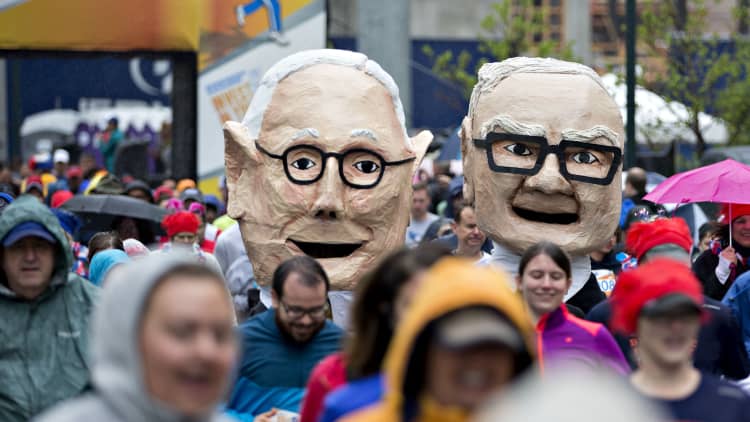Billionaire Warren Buffett's instinct on picking strong stocks may make him the Oracle of Omaha, but he knows when to let others take the lead.
Buffett and business partner Charlie Munger described their management style at conglomerate Berkshire Hathaway in this way: To identify good managers and then get out of their way.
"And so the important thing we do with managers, generally, is to find the .400 hitters and then not tell them how to swing," Buffett said at the 1994 Berkshire annual meeting. "The second thing we do is allocate capital. And aside from that, we play bridge."

Buffett, 88, believes managers need independence to stay interested in the company's performance. Although he and Munger are Berkshire's managing partners, Buffett said most of the "heavy lifting" is done by managers of subsidiaries. Of Berkshire's roughly 377,000 employees, just 26 work at the headquarters in Omaha.
(For the record, the last MLB hitter to bat above a .400 average was Ted Williams in 1941.)
'They're running it just as they were'
"We've had terrific luck over the years in retaining the managers that we wanted to retain," Buffett said. "I think, largely, it's because — particularly if they sell us a business — to a great extent, the next day they're running it just as they were the day before."
Buffett pulls from his own experience working in a partnership.
"I like to be judged on the score card at the end of the year rather than on every stroke, and not second-guessed in a way that was inappropriate," Buffett said. "I like to have people who understood the environment in which I was operating."
Buffett and Munger try to understand each business Berkshire acquires so they can distinguish between good and bad performance from managers. They avoid a one-size-fits-all compensation plan, paying managers depending on the industry they work in.
The notoriously tight-fisted Buffett has said paying managers large salaries doesn't bother him — as long as their performance deserves it.
"If we get a good batting average in our business performance, the pay is incidental," Buffett said at the 2003 meeting.
Geico example
Berkshire has beaten the market by investing in companies with strong leadership. Over the last 40 years, the company has returned 20 percent annually, double the S&P 500's return over the same time span, according to FactSet.
Buffett put this management strategy into play at insurer Geico, where strong management convinced him in part to pay a "steep price" when he purchased it outright in 1995.
Buffett first bought stock in the insurance company when he was 20 years old, eventually owning 41 percent of the company. In his 1986 letter to shareholders, Buffett credited Geico Chairman Bill Snyder with keeping operating costs low. Bufett called that the "most important ingredient" to the company's success.

"In sum, Geico is an exceptional business run by exceptional managers," he wrote. "We are fortunate to be associated with them."
Buffett agreed to purchase the rest of Geico for $2.3 billion in 1995. Gaining control of the growing company and its strong management was worth the high cost, he wrote in his letter that year. Buffett highlighted Tony Nicely, who rose from his position at the company as a clerk to become the chairman of the company.
In 1995, Buffett praised Nicely, who is still the chairman, for his intelligence, energy and focus, saying "If we're lucky, he'll stay another 34 years."
For more classic Warren Buffett advice such as this, see CNBC's Buffett archive.

